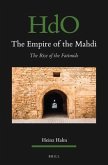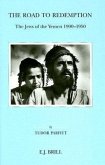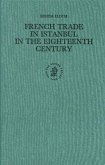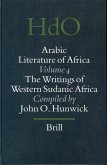This study presents a new approach to the phenomenon of Muslim pious foundations, or "waqfs," focussing on the evolution of the institution in the urban context and the elaboration of the legal framework to accommodate the urban system of control. Taking Damascus as an example, it is shown how the waqf-institution determined the shape and character of Muslim cities.
Hinweis: Dieser Artikel kann nur an eine deutsche Lieferadresse ausgeliefert werden.
Hinweis: Dieser Artikel kann nur an eine deutsche Lieferadresse ausgeliefert werden.








![The Magic Flute: Die Zauberflöte. an Alchemical Allegory [With CD] The Magic Flute: Die Zauberflöte. an Alchemical Allegory [With CD]](https://bilder.buecher.de/produkte/52/52399/52399513m.jpg)